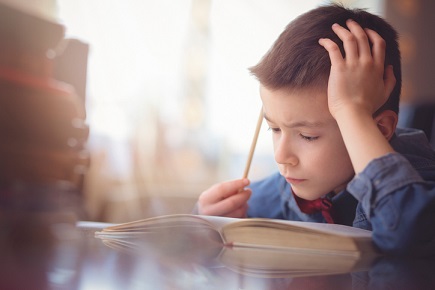
Education, whether it’s early childhood education, K-12 schooling or tertiary studies, has long been designed to equip us with the social and academic skills required to function in the broader world.
However, as the world has changed, so has the nature and, some might argue, meaning, of education.
This is a topic that was recently explored by University of Queensland (UQ) researcher Luke Zaphir in an article published in The Conversation.
“People need jobs to eat and to have jobs, they need to learn how to work. Education has been an essential part of every society. But our world is changing, and we’re being forced to change with it,” Zaphir said.
So, what is the point of education today?
Zaphir, a research assistant at UQ Critical Thinking Project, points to ‘Democracy and Education: An Introduction to the Philosophy of Education’, a 1916 book by John Dewey, an American philosopher, psychologist, and educational reformer whose ideas have been influential in education and social reform.
“Dewey argued our development and citizenship depended on our social environment. This meant a society was responsible for fostering the mental attitudes it wished to see in its citizens,” Zaphir explained.
“Dewey’s view was that learning doesn’t just occur with textbooks and timetables. He believed learning happens through interactions with parents, teachers and peers. Learning happens when we talk about movies and discuss our ideas, or when we feel bad for succumbing to peer pressure and reflect on our moral failure.”
Zaphir said learning would still help people get jobs, but this was an “incidental outcome” in the development of a child’s personhood.
“So, the pragmatic outcome of schools would be to fully develop citizens,” he said.
Zaphir said today’s educational environment is somewhat mixed.
“One of the two goals of the 2008 Melbourne Declaration on Educational Goals for Young Australians is that: ‘All young Australians become successful learners, confident and creative individuals, and active and informed citizens’,” he said.
“But the Australian Department of Education believes: ‘By lifting outcomes, the government helps to secure Australia’s economic and social prosperity.’”
Zaphir said a “charitable” reading of this is that Australia still has the economic goal as the pragmatic outcome.
“But we also want our children to have engaging and meaningful careers. We don’t just want them to work for money but to enjoy what they do. We want them to be fulfilled,” he said/
“And this means the educational philosophy of Dewey is becoming more important for contemporary society.”
Zaphir said that part of being pragmatic is “recognising facts and changes in circumstance”.
“Generally, these facts indicate we should change the way we do things,” he said.
“On a personal scale, that might be recognising we have poor nutrition and may have to change our diet. On a wider scale, it might require us to recognise our conception of the world is incorrect, that the Earth is round instead of flat. When this change occurs on a huge scale, it’s called a paradigm shift.”
Zaphir said education “needs to focus on developing the personhood of children, as well as their capability to engage as citizens – even if current political leaders disagree”.
“If you’re taking a certain subject at school or university, have you ever been asked: ‘But how will that get you a job?’ If so, the questioner sees economic goals as the most important outcomes for education,” he said.
“They’re not necessarily wrong, but it’s also clear that jobs are no longer the only – or most important – reason we learn.”


